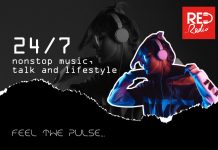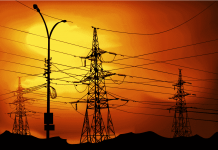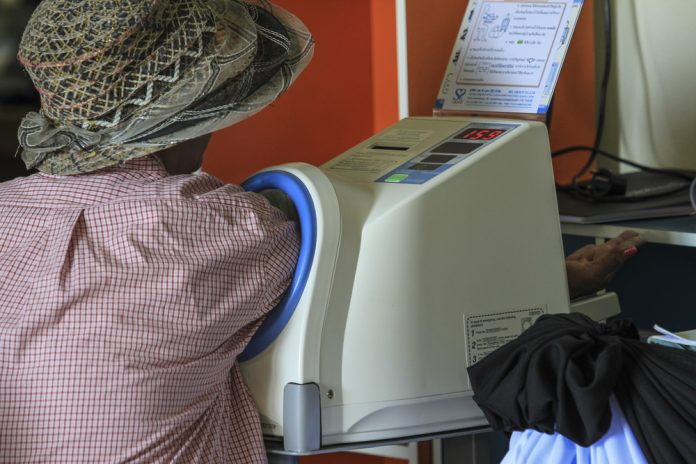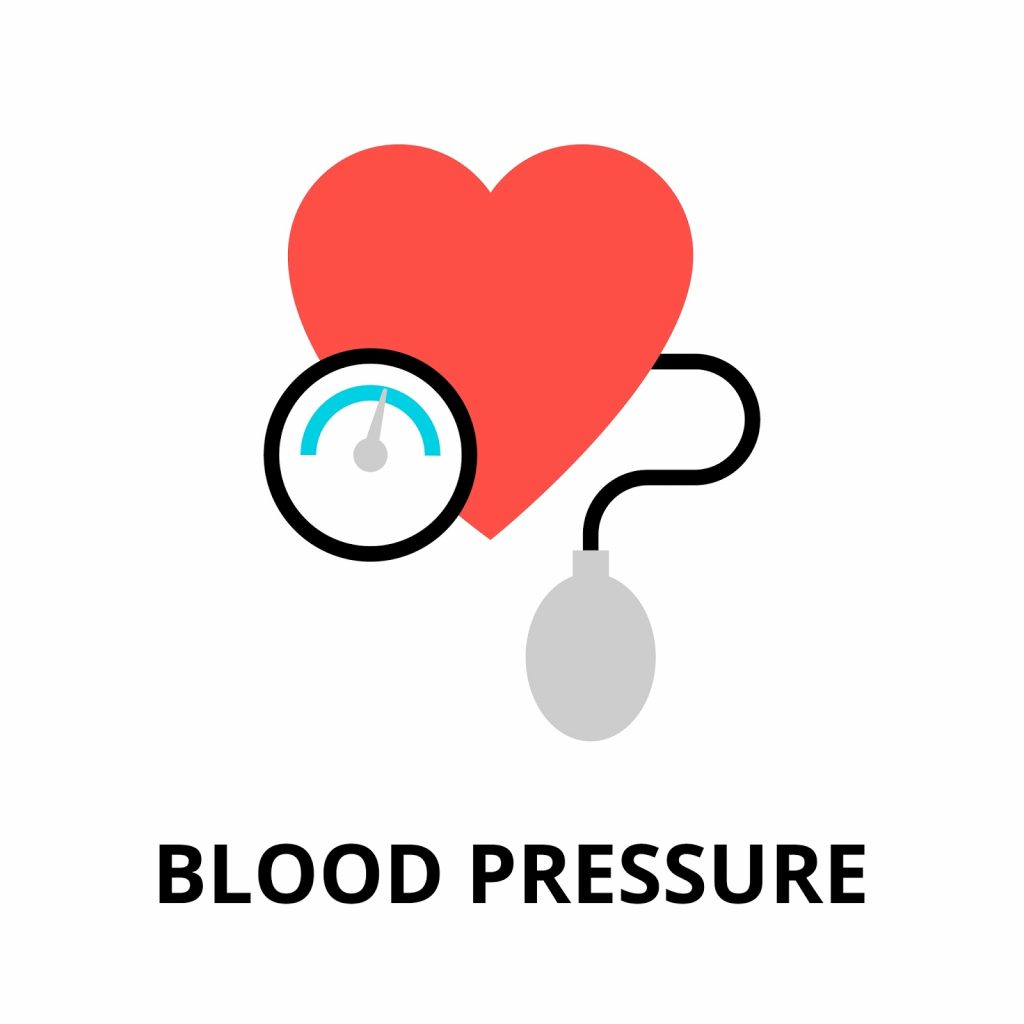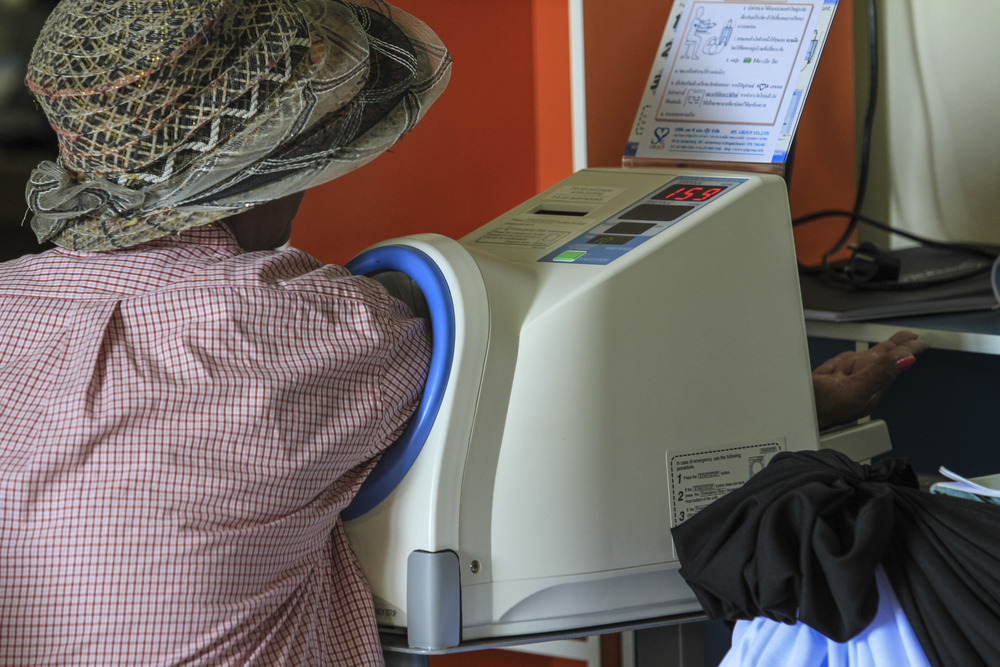If a person has high blood pressure it means that the walls of the
arteries are receiving too much pressure. Anyone whose blood pressure is 140/90mmhg or more for a sustained period is
said to have high blood pressure, or hypertension. There are two recordings, a
high one (systolic) and a lower one (diastolic). The systolic pressure is
measured when the heart contracts, while the diastolic one is gauged just
before the heart contracts.
arteries are receiving too much pressure. Anyone whose blood pressure is 140/90mmhg or more for a sustained period is
said to have high blood pressure, or hypertension. There are two recordings, a
high one (systolic) and a lower one (diastolic). The systolic pressure is
measured when the heart contracts, while the diastolic one is gauged just
before the heart contracts.
Blood pressure is usually divided
into five categories:
into five categories:
- Hypotension (low blood pressure)
Systolic
mmHg 90 or less, or Diastolic mmHg
60 or less - Normal
Systolic
mmHg 90-119, and Diastolic mmHg
60-79 - Pre-Hypertension
Systolic
mmHg 120-139, and Diastolic mmHg 80-89 - Stage 1 Hypertension
Systolic
mmHg 140-159, and Diastolic mmHg
90-99 - Stage 2 Hypertension
Systolic
mmHg over 160, and Diastolic mmHg over 100
Why the Drama?
The biggest single problem is not the High Blood Pressure itself, it
is lack of knowledge.
is lack of knowledge.
Sometimes
this is simply not being aware that you have Hypertension – there are often no obvious symptoms
of High Blood Pressure – but more often
it is a failure to understand the seriousness of the problem.
this is simply not being aware that you have Hypertension – there are often no obvious symptoms
of High Blood Pressure – but more often
it is a failure to understand the seriousness of the problem.
Here are some chilling facts :
Hypertension
is one of the 10 leading causes of death in the world. Hypertension has, again,
been described as the dominant cause of cardiovascular diseases in Nigeria.
is one of the 10 leading causes of death in the world. Hypertension has, again,
been described as the dominant cause of cardiovascular diseases in Nigeria.
Among urban Nigerian civil servants, higher socioeconomic status is
related to increased blood pressure. In a study done in Nigeria, urban workers
are shown to have almost 15% likelihood to have high blood pressure than their
rural counterparts.
related to increased blood pressure. In a study done in Nigeria, urban workers
are shown to have almost 15% likelihood to have high blood pressure than their
rural counterparts.
One in 100 black men and women
develops heart failure before age 50, a rate that is 20 times higher than
whites in the same age group, according to a study published in the New England
Journal of Medicine,(Stobbe, AP/Boston Globe, 3/19)
develops heart failure before age 50, a rate that is 20 times higher than
whites in the same age group, according to a study published in the New England
Journal of Medicine,(Stobbe, AP/Boston Globe, 3/19)
Physical inactivity alone increases
the risk of hypertension by 30% (World Heart Federation Fact-Sheet, 2002)
the risk of hypertension by 30% (World Heart Federation Fact-Sheet, 2002)
Risk Factors:
Hypertension has a variety of risk factors. Amongst urban workers,
it was found that aside from Age and family history of HBP (which are
uncontrollable), stress/ work pressure, obesity, poor physical fitness, alcohol
drinking, smoking, high salt intake, high fat diet and other unidentified
factors related to higher socioeconomic status were strong determinants of
hypertension.
it was found that aside from Age and family history of HBP (which are
uncontrollable), stress/ work pressure, obesity, poor physical fitness, alcohol
drinking, smoking, high salt intake, high fat diet and other unidentified
factors related to higher socioeconomic status were strong determinants of
hypertension.
Symptoms:
Most people are not aware that they have hypertension because of a
general lack of symptoms until major complications arise. In rare cases, some
people with hypertension may have headaches, dizziness, nausea, blurred vision
or nosebleeds.
general lack of symptoms until major complications arise. In rare cases, some
people with hypertension may have headaches, dizziness, nausea, blurred vision
or nosebleeds.
Because of this lack of symptoms, regular check up is vital to
monitoring blood pressure and promptly treating high blood pressure if it
occurs before serious complications result.
monitoring blood pressure and promptly treating high blood pressure if it
occurs before serious complications result.
Treatment for High Blood Pressure
The best treatment for High Blood Pressure is to make changes to
your lifestyle:
your lifestyle:
Regular exercise – physical
exercise helps lower and prevent high blood pressure and cardiovascular
problems. Exercise of 30 to 60 minutes five days a week will usually lower a
person’s blood pressure by 4 to 9 mmHg. The secret of getting success out of
exercise is to do it regularly.
exercise helps lower and prevent high blood pressure and cardiovascular
problems. Exercise of 30 to 60 minutes five days a week will usually lower a
person’s blood pressure by 4 to 9 mmHg. The secret of getting success out of
exercise is to do it regularly.
Eating healthily –
- Eat
more fruits, vegetables, and foods rich in potassium & magnesium. - Cutting
back on foods that are high in saturated fat and cholesterol - Eating
more whole grain products, fish, poultry, and nuts - Eating
less red meat and sweets - Losing weight – If you are overweight, the nearer you get to your
ideal weight the more your blood pressure is likely to fall. - Reducing alcohol consumption
- Lowering salt (sodium) intake
- Lowering caffeine consumption
- Sleep and more time for relaxation
Lets have African images to illustrate this




